Darnell Moore and dream hampton
The Future of Hope 2
We’re in a time as thick with uncertainty as with possibility. Many of us are still, and again, exhausted — and yet opening, fitfully, to what we’ve learned and have been called to at this moment in the life of the world. Toward nourishing that, the second offering in our new series, The Future of Hope, with social creative Darnell Moore in conversation with filmmaker dream hampton. The influence they wield spans hip-hop to Netflix to the Oscars; from the Movement for Black Lives to Surviving R. Kelly.
It is an honor to enter this tender, intimate conversation between two dear friends. In them we experience a muscular hope in justice oriented toward redemption — and calling out in a spirit of “calling in.”
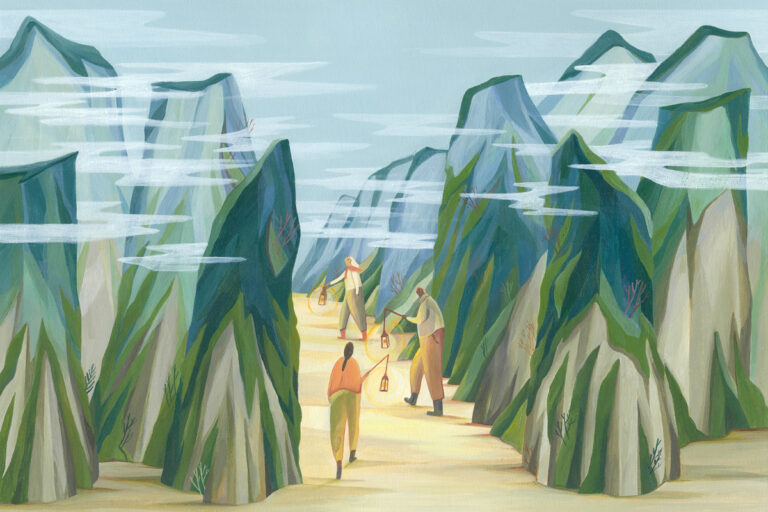
Image by Ifada Nisa.
Guests
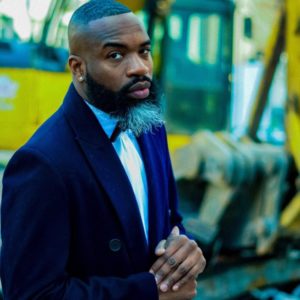
Darnell Moore is the Vice President of Inclusion Strategy at Netflix. His memoir is No Ashes in the Fire: Coming of Age Black and Free In America, and he is host of the podcast “Being Seen.”
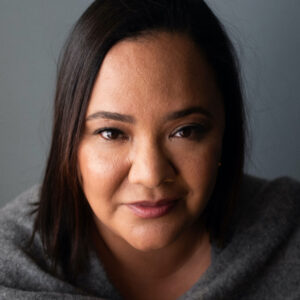
dream hampton is a filmmaker and writer. She won a George Foster Peabody Award for the docu-series Surviving R. Kelly. She’s been named as one of Time Magazine’s most influential people. Find an archive of all her writing at dreamhampton.com.
Transcript
Krista Tippett, host: We’re in a time as thick with uncertainty as with possibility. Many of us are still, and again, exhausted, and yet opening fitfully to what we’ve learned and been called to at this moment in the life of the world. This hour, towards nourishing that, the second offering in our new series, The Future of Hope.
Darnell Moore is one of my beloved conversation partners of recent years. He is a social creative and a force in the constellation of energies that is the Movement for Black Lives. I admire him as a writer and podcaster who deepens and humanizes every subject he picks up. And this hour, we experience him in conversation with the extraordinary Detroit-based writer and filmmaker, dream hampton. She’s best known right now for co-producing the 2021 Oscars and for the culture-shifting documentary she executive-produced, Surviving R. Kelly.
Here’s something Darnell wrote to me about her. “She is a sister/friend who I’ve organized alongside, learned from, and have been inspired by for more than a decade. She is an astute and natural intellectual artist who is unafraid of challenging our ways of thinking and poses the right questions that might ultimately encourage us to be different in the world. She was the first person that I thought about when I began to think about hope and its limitations and possibilities — an idea that deserves excavation.”
So it is a privilege to enter this tender, intimate conversation between two dear friends. In them, we experience a muscular hope in justice oriented towards redemption, and calling out in a spirit of calling in.
[“Seven League Boots” by Zoë Keating]
dream hampton: You always remind me — and I believe you have this training — of the best of what we imagine a pastor to be, of the best of what we imagine the Solomon model of a judge to be: someone who’s not dispassionate, but who’s invested in healing, at the end of the day. So I love that about you. I’m not always — I can’t always claim that to be true. I think about Che Guevara’s thing about, basically, to be a revolutionary, you’ve got to love the people. And I’d be like, ugh! [laughs]
Darnell Moore: [laughs] “I don’t feel like loving people today!”
hampton: Right? [laughs] “I don’t feel that, to say ‘love.’ That’s not the feeling I have today.” [laughs] But it is. You know, it’s always the thing, the undergird. It exists and is there.
Tippett: I’m Krista Tippett, and this is On Being.
[music: “Seven League Boots” by Zoë Keating]
Darnell Moore’s hometown of Camden, New Jersey, looms large in his story — a city “literally on fire” in 1971, he’s said, and “still smoldering” when he was born, five years later. He is currently Vice President of Inclusion Strategy at Netflix. He appeared on this show in 2019, discussing his memoir, No Ashes in the Fire.
And before dream hampton began making films, she was known as a music journalist and celebrated personality inside hip-hop’s formative decades, pioneering a voice for women and for accountability to culture and community. After her film Surviving R. Kelly aired on Lifetime in 2019, it brought years of exploitation and objectification of young girls and women into public consciousness. It led directly to the R&B giant R. Kelly’s conviction, in September, 2021, on nine federal charges including sex trafficking. dream hampton was born in Detroit, and that city remains her center of gravity.
Moore: dream, hi.
hampton: Hi.
Moore: So excited to be in conversation with you.
hampton: Oh, thank you. It’s my honor.
Moore: So I always like to begin conversations with a focus on home and, for me, one’s foundational place, whatever that place might be. And since we’re talking about what I like to call the shape of hope, I want to begin our conversation by reading a passage of your writing — I know you’re about to be like, ugh, he’s going to read my stuff — just bear with me — from a piece that I think is really lush, that you wrote for the Detroit Free Press in 2012, titled “Things I Lost in the Fire.” And in many ways, it speaks to your sense memories of Detroit, which is one of your homes. So, your words:
“In 1976, my mother and stepfather moved from our two-family flat on Eastlawn and Kercheval, an increasingly dangerous intersection, to a painted gray brick, three-bedroom house on Newport, one block over and a mile north and what felt like worlds apart. My mother divorced my father when I was 2. He stayed in my life but I also don’t remember a time before my stepfather. The apartment on Eastlawn was a rental. I remember a landlord yelling at my parents about the waterbed in the living room. I spent most of my time beneath a faux velvet black quilt on that waterbed because my block and the ones around felt unsafe to me, whatever that means to a 5-year-old black girl, and I chose my developing reading habit over the outside.”
And I read that, and I’m imagining you as an inquisitive five-year-old, hiding under your faux black velvet quilt on that waterbed, dreaming and possibly hoping, and possibly hoping for a future where you would no longer need to hide. Can you talk about your family, your homeplace, your coming-of-age, and the ways that hope shaped all of the above?
hampton: Wow. I don’t remember writing that. [laughs] And it was recent — I wrote that within the past five years, but once I write something, I don’t go back and reread it, usually. And I kind of write it in this way of almost like an expelling, like getting it out of me. And so to hear you read it back to me, it did feel lush. [laughs] I can remember that waterbed, which, if you were born after the ’80s, you probably don’t even know what a waterbed is. [laughs]
But I mean, when I talk about whatever that means to feel unsafe as a five-year-old Black girl — and I wasn’t one of those kind of girls who “develops” fast; I don’t know if that’s something just Black folks say, [laughs] but I didn’t develop fast. And no five-year-old is developed. But — and this is wild, that I’m already framing it, like, trying to take responsibility for the fact that men were catcalling me, that boys that were much older than me, and young men, were already kind of making comments about my appearance. And it wasn’t always like, “Come here, give me your number, you five-year-old.” It was like, just commenting; that right that men feel that they can say, “Oh, you’re gonna be a so-and-so when you grow up,” or just, “Look at them legs” — things like that that used to make me feel just, like, wanting to be in the house, right? And I also remember that boys used to take rocks and put them in snowballs and throw them at us. [laughs] I know! That’s so hardcore, right? So those are two things that come to mind.
I hate to have — to begin with some terror, right? Like, in my ’hood, there was everything. There was — it’s probably outsized to me even now, as an adult, and definitely as a child, but I also remember there being this mobile pool that would come through the ’hood. [laughs] It was like, a pool on the back of a flatbed that we would all get in. I remember playing hopscotch and being all Virgo about the lines and the way that the hopscotch boxes were drawn, you know? So I remember that one of my neighbors had a station wagon. And we would pretend to be a family and get in the station wagon like we were going to drive to the beach. I remember my yellow and green Schwinns that my brother and I had. So I remember good things.
And I’m not sure that, in that, that I was thinking, oh, this is me being hopeful. But I know that in the books that I was reading — definitely, I think by kindergarten, I was reading Beverly Cleary. By first and second grade, I’m reading —
Moore: You were doing so much when you were young. I also discovered that you were driving a car when you were in fifth grade. I’m like, what? You’re reading books and driving a car — OK. [laughs]
hampton: Well, this is a five-year-old me. But yeah, by the fifth grade I’m totally stealing my parents’ car [laughs] and driving around the block on a phone book.
So I don’t know — I feel guilty, sometimes, when I write about the terror of being a girl, being in this body, because there was all this joy, too. And I know that there’s a lot of effort, concerted effort, to focus on joy and Black joy. But both were true for me.
Always awkward, in terms of making friends — and it was always me, it wasn’t anyone else. My personality is just one that everyone feels like they have to get used to. [laughs] So that makes me self-conscious. I remember my mom, even when I was five, telling me, You’re not going to have friends if you always have to be the teacher and the doctor. And I was like, I’m not going to let them be the teacher, though — [laughs] they don’t even know the lessons. [laughs]
Moore: “The lessons.” But this is interesting. It’s interesting that you’re bringing this up, because it’s one of the things that Tarana Burke says of you. Tarana Burke, who’s a founder of the #MeToo movement and also a sister of ours and a friend, says, in her profile on you for Time Magazine’s 2019 Time’s “100” list, “Time 100“ list, “At her core, dream hampton is a community organizer from Detroit alerting us all to a crisis and that we have a role in solving it.” And here’s the part that I love: “Because she believes that we can.”
And belief is akin to hope. I mean, I reckon that your relentless pursuit of liberation, for freedom, has much to do with your hope in the possibility that we absolutely can, if we will ourselves to do so; that we can transform the world. So this idea of you saying, “I’m not going to let anybody else be the teacher. I’m going to do it,” it seems to me that in that push, this push that you have to do, is a hope in what can be and our part in that. Is that a fair assessment?
hampton: It is, but in that, I also see this lifelong lesson that I have of believing in collaboration. I’ve had to be real with myself about how comfortable I am in hierarchical situations, and not only when I’m at the top of the hierarchy. Like, I love a film set, you know, because the hierarchy is almost militaristic. And if I’m just a writer on a set, then I’m not trying to tell the cameraperson what to do. If I’m a director on a set, then I absolutely am, and that cameraperson is union and often calling me “boss” instead of my first name. [laughs] Like, I’m so into it, right?
But then when it comes to some of this organizing work in movement space, and family- and friend-building, one of my lifelong challenges is this thing that my mom flagged for me at five, which is like, you have to make space for collaboration. And so that’s a lifelong challenge. And what you’re talking about, that belief — when you believe in people, when you really give them the space to make mistakes and discover better ways to do things and to get to a goal collectively, is so rewarding for them and for you. Then, back to that five-year-old, you’re the kid that people do want to play with, right, [laughs] and you are someone in an organization that people want to work with. And I’ve been both. I’ve been someone who people want to work with and people who don’t want to work with.
But you’re right. And that includes, I think generationally, making space for new generations, which is I think the moment both of us find ourselves in, as Gen X-ers. For a long time, the conversation was about millennials, but now we’re talking about Gen Ys, right? So it’s about not making those same mistakes that we’ve seen the civil rights generation make, of not — like, I have no idea who Jesse Jackson’s mentee is and who he plans to take over his organization; same with Al Sharpton. Like, they are all guilty of not being able to transition power, even some of the things that are considered prestigious in terms of visibility. So I don’t want us to make those mistakes, and I don’t think that we’re going to be able to; we’re this sandwich generation that people are [laughs] ready to get rid of anyway. [laughs] But in general, trusting a new generation to come and even make their mistakes and all of the things has been a big part of the work, too. Would you say that’s true?
Moore: I would say that’s very true. And that’s been one of the things I’ve been really focused on, in this part of my life. It’s like, making space for those that are coming up alongside us. And that’s so critical.
But I’m going to do something — I’m going to do something — I’m going to read some more of your words. So be ready.
hampton: Oh lord. [laughs]
Moore: In a deeply vulnerable piece that you wrote for Gawker, titled “Audacity: Losing My Fear of Outside,” which you published in 2012, here’s what you wrote: “My audacity is my fight, to be bigger than my fear. I’ve never been able to summon fearlessness by anger, even when it’s been a reaction to deep injustice, social or personal, instead it’s functioned in my life as a kind of walking meditation, one that has driven me around the world and back.”
Please say more about that.
hampton: I should say that that essay was first published in Black Cool, and our good friend Kiese Laymon asked to reprint it in Gawker. So I think of Malcolm X talking about all of the things that anger can produce; like righteous anger can be a motivating and organizing principle. I love when he talks about that. But for me, it hasn’t functioned that way. The thing that really has been, kind of warmed my fires throughout this year — I mean, throughout my life, [laughs] but that’s funny that I said this year, because it’s been quite a year. But one of the things that has been a constant for me is, I don’t — fear isn’t — it’s not a friend of mine. I don’t walk in fear, you know?
And I don’t know if it’s because I’m not afraid of consequences; I know that there are consequences, and I believe in accountability. But I think that the era that we both grew up in, Darnell — and I’m just starting to process this, because I have a good friend, Vince, Invincible, from Detroit, also an organizer and just an incredible human being, who is trying to get me to look at the ’80s as like this kind of traumatic — like this kind of postwar situation. Again, I don’t like the hyperbole that a lot of millennials use; I’m like, the ’80s were amazing. [laughs] You know, the music was amazing. The clothes were amazing. I felt really free. But I also buried so many friends, mostly boys, right, that if I had fear — and I don’t even remember having it as a kid — I lost it, you know?
So this fear of — I guess the biggest fear one could have is of death. And we, if you grew up in the ’80s and you had any kind of — if you were outside, [laughs] if you were outside in the ’80s, in a city like Detroit, in a city like where you grew up in Jersey, then I think that we dealt with so much violence and death. It was so scaled up — America, quite frankly, if you grew up in America in the ’80s. And I don’t like to say just the inner city. I’ve watched Todd Solondz’s films, so I know what was happening in the suburbs, too. [laughs] But if you grew up in the ’80s, there was just this — so I don’t know.
I don’t want to say too much more about it than that, and I don’t want to brag. I know that being afraid is being human. And I’m not saying that I don’t ever feel vulnerable, or afraid for others. But when I’m doing my work, in particular — and it used to be a security concern, like when — I was a founding member of the New York chapter of Malcolm X Grassroots Movement, and the head of security, Lumumba Bandele, used to always have to have a talk with me before protests, because I would be the one who would get right up in the cop’s face or — you know what I mean? So I’m not saying that this fearlessness is a good thing strategically, always. I’m also not thinking about consequences often, online, which is how I’ve ended up in different snafus, right?
Moore: [laughs] For sure.
hampton: [laughs] I don’t have a strategy. I’m not running tweets by people or thinking, oh, if I tweet this, then it’s going to have all this blowback. I’m always surprised by what did have blowback, when I used to be on Twitter. And then even the work, I guess the most visible work that I did recently was, say, Surviving R. Kelly. And there could’ve been some strategy, because I needed actual resources for the blowback that came after doing that documentary. And because I just went into it without a fear around that, I wasn’t prepared to have to move, and all of the things that happened after that.
Moore: You know, it’s interesting, when I’m hearing you lay this out, it’s a fearlessness, yes. For the listener: I have this running meme where I’ll call dream “G.B.,” which is short for “gentle breeze.” A breeze is also a force, and dream is certainly a force.
But there’s something rooted in that fearlessness, to me, about your belief in what can be — like your belief in justice, your belief in a type of truth. And maybe that belief is also a hope that there can be something on the other side of whatever the work is, whatever the thing is that you’re pushing. And that, to me, is where the hope connection comes from.
[music: “The Best That Ever Did It” by J Dilla ]
Tippett: I’m Krista Tippett, and this is On Being. Today, a conversation in our series The Future of Hope, between Darnell Moore and dream hampton. The influence they wield spans hip-hop to Netflix to the Oscars; from the Movement for Black Lives to Surviving R. Kelly. This conversation between them also surfaces names and ideas from an ecosystem that shapes them. Pivotal is the scholarship of Ruth Wilson Gilmore and her invention of “carceral geography,” charting “the interrelationships across space, institutions and political economy that shape and define modern incarceration.” Together with Angela Davis and others, Gilmore co-founded the Critical Resistance organization, to abolish prisons as we know them.
[music: “The Best That Ever Did It” by J Dilla ]
Moore: Abolition is a — I want to turn to abolition for a second, because it’s been re-popularized in public discourse, thanks to Black organizers whose own work, we know, is grounded in and pays homage to Black feminist and queer politics of folks. And I’ve often described abolition, thanks to Ruthie Gilmore, as the collective work of imagining into being and building the life-affirming resources and institutions that ought to go in the place of the horrible, death-dealing institutions that do us no good. Prisons is but one example. So to me, people think about abolition as only the razing of a thing, the destruction of a thing, but it’s really a building of a thing. And in my mind, it’s a faith practice, inasmuch as it is a political posture and practice, because it asks us to imagine and build a different world, with a different set of social relations, and that, to me, is hope. How do you see hope as critical to the work of reimagining and reconstructing a world? What are your thoughts around that?
hampton: Well, first, thank you for invoking Ruthie Gilmore and the Golden Gulag and for quoting from it. I mean, I think that her work is so foundational to so many organizers, and she needs to just be cited as often as possible, and maybe a guest on this show. And like so many people who engage in this question of police terror throughout the decades, they had this idea, Critical Resistance, of putting in different structural hacks, basically, that might improve the outcome for women who are on the other end of the domestic violence call. And after those ride-alongs, and after years of trying to do that work, they arrived at this abolitionist framework, which informs so much of the work that you see today.
And I think that journey is important, but I also think of Kali. So the force of destruction, the force of fire — you know, I’m thinking about the Indian, the Hindu goddess Kali — is always about clearing to rebuild. I think that — and Invincible, one of their songs invokes this phrase, because we do all this work in Detroit around emergence theory and looking at nature and different, other, biological parallels — and Ill has this verse about parallel universes; like, we’re already in them, we’re already building them. When you look at mutual aid, when you look at how we made it through this pandemic, when you look at how Black folks have made it through America, how we’ve survived America, it’s always — we’ve already been building these parallel universes that are rooted in care and, as you say, hope.
Getting back to that fearlessness and a long journey, Malcolm X remains someone that I am constantly thinking about. And I think about the work that got him killed. And that work was speaking up for Black girls, speaking up and out about the fact that a man that he considered to be a prophet was abusing young Black teenagers. Made it so dangerous for him, in the organization that he made important, that it cost him his life. Of course, we know that the FBI and the CIA and everyone who was following him stood down and also exacerbated those conflicts, but we also have to take intracommunity responsibility for the death of Malcolm.
This is before we get the ’70s and the Kitchen Table Press of bell hooks and all of the Black women — Toni Morrison, Audre Lorde — all these women that are going to come up in the ’70s and ’80s and not always necessarily cite Malcolm X. We have Malcolm X, in 1963 and ’64, saying, “Hold up; I’m in this; I built this organization” — he was an incredible builder, an organization that he built so well that it still stands today — “and I am willing to set that part on my life on fire for Black girls.” That was just huge, you know?
Moore: I love this notion, this imagery even, of what it means to sort of set fire to a thing, with the idea that out of that comes newness, the new creation. And that’s precisely at the heart of abolition. It is, in my mind, I think about it as a faith practice. It is a belief in the possibility that we as a people, as communities, as a world, can just be better. We can be more just. We can be more life-affirming.
hampton: Well, let’s stay on that fire for a second, because —
Moore: Yeah, please.
hampton: [laughs] Well, I mean, obviously your book invokes that, with “ashes” in the title. I’m thinking about Toni Morrison and how often fire shows up in some of her most important novels. I’m thinking about what we were just talking about, with Kali. I’m thinking about Detroit, and I’m thinking about …
Moore: Camden.
hampton: … Camden and Newark and Watts and all of these cities that were literally set on fire after the assassination of Martin Luther King, and of course, it was connected to all this other kind of violence and terror against Black folks. I don’t have much more to say; I don’t have anything profound to say about it, but you are invoking it as this — and I’m not saying — because when I think about Detroit, I mean, the narrative is that “we set our city on fire, and now look at it.” But again —
Moore: Same for Camden, New Jersey.
hampton: Right, but that wasn’t how I experienced that post-fire, after the rebellion, after the insurrection in Detroit.
What happened is white people fled, and all of a sudden, we had this Black city. [laughs] Now, I mean, we still had capitalism. We still had classism. We still had corruption, right? But it wasn’t until I got to New York at 19 where I started to experience — I could go to the suburbs to experience overt racism, so I don’t want to act like New York was the first time I experienced it. But I had never been told to, say, “Buy, or get out of the store,” [laughs] until I got to New York. I had never been treated so poorly, as a citizen of a city, until I got to New York, because in Detroit, we very much felt and knew that this was our city.
We’re losing that, with so-called “development,” but I absolutely grew up in a city that was this experiment in like, a Black political post-insurrection experience and experiment. And there was this feeling that I don’t think — it was so normal, it was so normalized, that I didn’t realize how important it was until I got to a city like New York, where, a couple of years after I arrived, they were just trying to elect their first Black mayor, who was a one-term mayor, David Dinkins.
Moore: Oh — yes. You’re reminding me of my New York days. Long live Brooklyn. [laughs]
hampton: [laughs] Long live BK!
Moore: Long live BK — Bed-Stuy, specifically.
[music: “Dialtone” by Blue Dot Sessions]
Tippett: After a short break, more with Darnell Moore and dream hampton.
[music: “Dialtone” by Blue Dot Sessions]
I’m Krista Tippett, and this is On Being. Today a conversation for our series, The Future of Hope, between Darnell Moore and dream hampton. Darnell has been a community organizer and force in the Movement for Black Lives, leads in content inclusion at Netflix, and is the author of a wonderful memoir, No Ashes in the Fire. dream hampton is best known now for her culture-shifting films, including Surviving R. Kelly. She began her career as a music journalist covering hip-hop, and was a celebrated personality and force inside hip-hop’s formative decades, pioneering a voice for women and for the influence on culture and community that that music and its makers have. In one of many high profile moments, after the rapper Too $hort made a video that offered young men “tricks” for sexually cornering young women, dream decided, she said, not to call him out but to call him in — to educate him and make him think in public about his influence on women, on men, on children. Ebony Magazine published their dialogue, which the rapper later said had been a “wake-up call.”
Moore: You know, there’s this moment that you’ve experienced that I want to bring to our attention, because as we’re talking about abolition and fires, I’m thinking about restorative justice. I’m thinking about notions of calling in and calling people out, right? [laughs] We can’t have a conversation without talking about that within the present milieu, right? And you know, calling in, calling out, restorative justice, that, too, is a work — the work of justice is also, that’s grounded in hope.
And one example comes to mind, if you’re recalling the time that you phoned the rapper Too $hort. And for folk that are listening, like, Too $hort, you know, was hot stuff. You phoned Too $hort to talk to him about a video he made about how boys can corner girls on a playground, pretty much. And that was an act of you calling in. And for me, I always say, to love is to not lie; like, you’re not going to go to battle to really help and struggle with someone unless there’s a love for them and a hope that on the other end of that accountability is self-transformation. I wonder if you could just recall that moment and talk a little bit about calling in as a — or calling out, or restorative justice, accountability — is to love. It is also grounded in hope.
hampton: Accepting your definition, I was like, well, wait a minute. Do I love Too $hort? But I’m like, girl, please, you know you do — like, “Blow the Whistle.” [laughs] Like, I probably learned about sex from listening to Prince, his early — all the stuff he wouldn’t perform, once he became a Jehovah’s Witness, and those first few albums, which were so important in Detroit; and Too $hort, you know? Like, yeah. I mean, I’m not saying that’s a good way to get your sex education. [laughs]
And then here’s Too $hort — I’m a grown woman, he’s almost — he’s 40-something years old, still giving kids this super-wrong sex education. I think it was one of those rap sites. And you know, I got him on the phone because I had to be like, what are you talking about? And these are all the reasons why this is wrong, and these are how you’re putting Black girls’ lives in danger. This is — I mean, a big part — it’s not just Black girls; I mean, the consequences in a carceral system to committing sexual crimes is incarceration. You’re also putting these Black boys, by mal-informing — I don’t want to even say “misinforming,” because it’s mal-intended, right, to — I don’t know that “mal-informed” is a word. [laughs] But you know what I mean, the malice involved in making a video telling boys how to commit sexual crimes.
And what was revelatory about this and what made me pause, even in the conversation, was that he honestly did not — and this is the larger conversation we need to be having about boys and consent and just, cis men need to take this work up of being real about where we’re lacking and where we have not been having conversations about what consent is. And he just honestly did not understand it that way. It was a revelation for him, to hear me talking about being at public pools growing up and having boys try to take down your top, and the terror of that and how unsafe it made us, in fact.
And then, again, when you’re talking to folks and trying to get them to change their, basically, worldview or their point of view, we are self-interested. That’s how we’re wired as humans, particularly those of us who are human and grew up under capitalism, right? So the self-interest part was to say: Listen. And here are the consequences if you get caught committing this crime that you’re describing. So that piece about, This will land Black boys in jail, has to be a part of that conversation, too. I don’t like that framework, because, again, it’s incredibly carceral; it relies on this punishment narrative to incentivize, and I don’t want to do all that. But I am trying to get to a point, however, by hook or crook, where you’re understanding what’s going on here, in terms of what you’re really putting down and out in the world.
Moore: And that’s hope.
hampton: Is that hope? OK. [laughs]
Moore: It is. It is. It’s a hope in the possibility that a person can actually change, and a belief that they can.
And since we’re talking — since we’re on that, I cannot have this conversation with you without bringing up someone that we both admire, have been shaped by: cultural force, feminist teacher bell hooks. She says of hope, in Talking About a Revolution, a book of interviews, “Hope is essential to any political struggle for radical change when the overall social climate promotes disillusionment and despair.” And then in Teaching Community: A Pedagogy of Hope, she writes, “When we only name the problem, when we state complaint without a constructive focus or resolution, we take hope away. In this way, critique can become merely an expression of profound cynicism, which then works to sustain dominant culture.” If you were to engage hooks about these thoughts, what would you say to her?
hampton: Well, I’d have to admit to being guilty of the latter. Grace Lee Boggs from Detroit, philosopher, Chinese American who the FBI called “Afro-Chinese” [laughs] because she was so engaged in the Black liberation struggle in Detroit, she —
Moore: Such an honor. [laughs]
hampton: Right? She used this phrase — at least, I know this phrase from her — “solutionary.” And I love it, but I also find it to be burdensome. I don’t think that one always has to have, when calling out a thing, I don’t think that one has to have an alternative. I don’t have an alternative to capitalism. I mean, obviously, there are ones that exist, and there are people who are having debates for centuries, based on important texts that were written, and that is happening. [laughs] It’s not like I don’t know what socialism and communism are and I don’t know what they look like in all different kinds of centuries and decades. But I don’t have, in America, some solution to capitalism. But that doesn’t mean that I somehow should not be calling it out. And if that makes me cynical, according to bell hooks’s definition, then I’ll just have to live with being cynical sometimes. And I’m guilty of cynicism.
I love that this conversation is about hope, because you are one of the people in my life who — you are someone I complain to, [laughs] and I also raise these important issues about things that are happening in the culture, in the movement, in our friendship and social circles, which can all be overlapping and intersected. And you have a way of being in the world, a very upright way of being. You always remind me — and I believe you have this training — of, you know, what the best of what we imagine a pastor to be, the best of what we imagine the Solomon model of a judge to be — someone who’s not dispassionate, but who’s invested in healing, at the end of the day. So I love that about you.
I’m not always — I can’t always claim that to be true. I think about Che Guevara’s thing about, basically, to be a revolutionary, you’ve got to love the people. And I’d be like, ugh! [laughs]
Moore: [laughs] “I don’t feel like loving people today!”
hampton: Right? [laughs] “I don’t feel that, to say, ‘love.’ That’s not the feeling I have today.” [laughs]
But it is. It’s always the undergird. It exists and is there.
But cynicism, I don’t think, is — I don’t want to shame folks for wherever they are, is I guess the bottom line. If you don’t have a solution, and you can’t be a solutionary in the moment, I don’t think that means that you should swallow your words, swallow your complaints, even swallow your cynicism. I don’t think that we should perform this kind of positive — and it never feels like a performance with you. But I don’t think that we should be made to perform a particular kind of positivity just to feel like we’re contributing in spaces, even if those spaces are traumatized, you know?
Moore: That’s right.
hampton: Obviously, there are times to choose silence. But even that little bumper sticker thing, that little Hallmark thing that folks say, “Ask yourself first, does it need to be said? Is it true? Is it right?” — [laughs] whatever those little list of things before you say a thing — I’m like, uh-uh. That’s not — just go ahead and say it. There are things that can’t be taken back. There are things that have been said to all of us, as early as we can remember, that remind us how important words can be and to be intentional and careful and loving in communication, as often as we can. But I also don’t want to shame people for not having the answers, and I don’t want to silence them if they don’t have some alternative solution.
Moore: Yes to that. Yes.
[music: “Rumoi Night” by Blue Dot Sessions]
Tippett: I’m Krista Tippett, and this is On Being, today with Darnell Moore and dream hampton. She came to worldwide attention with her docuseries, Surviving R. Kelly. The six-part series aired on Lifetime in 2019 and helped directly lead to the arrest of the R & B giant R. Kelly. In September, 2021, after this conversation took place, the singer was found guilty on nine federal charges, including kidnapping, bribery, and sex trafficking.
[music: “Rumoi Night” by Blue Dot Sessions]
Moore: We’ve talked about restorative justice, transformative justice, calling out and calling in, and I think we cannot have that conversation without talking about the critical work you did with Surviving R. Kelly. That work was not only resonant for the culture, but it literally had so much to do with ending the violence, the abuse that R. Kelly was guilty of committing. Can you talk about that work and why it was important for you, in spite of all of the challenges that you’ve received on the tail end, for having done it?
hampton: Right. Well, top to bottom, it was a challenge. But I accepted it because he’s our generation’s problem to have solved, and we just didn’t. I think about folks around him. I think about the music industry. And there was never a moment where we said, OK, brother, until you do this, we’re not going to engage you. And it just never happened, and it was time.
And I didn’t expect the consequences that did happen. He was a 50-year-old singer who hadn’t had a hit in a decade, and, you know, he had done everything he had done in public, so I didn’t think that there was going to be these kind of consequences for him. I didn’t think he’d end up in jail. But I realized that there was a whole new generation that weren’t even aware of how he had been getting down for almost 30 years and, quite frankly, how it had escalated, how there were new victims who were experiencing a new level of terror from this man.
Moore: And even in all of that, and even if it wasn’t something you were thinking about at the time, the push — that fearlessness, the relentless push to get, to bring about a transformation, a justice and ending of abuse, is grounded in the hope that you have in the fact, in the possibility that, with that accountability, with the stopping of that abuse, could be liberty and freedom for some girl, some Black girl somewhere. So thank you.
hampton: Oh, thank you. And by the way, I want to say, and this is rooted in my friendship with you, is that I also have — and I wouldn’t have had this, quite frankly, before people like you came into my life — I wouldn’t have had a hope that he himself could’ve been transformed. I don’t think that prison is the place that that happens. And, you know, I hope that R. Kelly, I hope there’s a healing for him, because he’s a deeply wounded person, like so many predators, right?
That’s one of the things I learned, making Surviving R. Kelly; and it was a team effort, this wasn’t just me heroically having hope. It was a lot of people who came to bring that docuseries into being, including, of course, the women who agreed to come on camera and a bunch of women who wouldn’t come on camera, but who corroborated so much for us.
Moore: And my final question — this has been so, I’m just so grateful that we’ve been able to engage in this way.
hampton: Me, too. I laughed, I giggled just now because I’m like, wow, we made it through this? I was so nervous about this conversation. On Being is all about the spiritual — these are these conversations, and I’m like, I don’t know that I’m the person for this. But go ahead. [laughs]
Moore: And here you are. You’re absolutely the person for it.
hampton: Here I am — made it through it. [laughs]
Moore: In an interview you did for a WUOM-FM statewide program, you said, “I kind of do what I love, and therefore, it’s my life.” And you have done, and you do, a lot. And you’ve done and do what you love. And this, you say, is your life. How does hope, if it does, shape all of that which you do?
hampton: First of all, I want you to — I’m going to tell my daughter that I need you to speak at my funeral …
Moore: [laughs]
hampton: [laughs] … because thank you for finding my words and saying them back to me and just for, you know, witnessing. You’re such a good friend in that way.
You know, I love how you are making me think about the different definitions of hope and to think of “hope” as this word that covers so much more than I probably had thought of it before, because, yeah, every morning I do, I feel like — and I don’t mean to — this may be ableist. I know that folks — I know what depression feels like. Let me now say that every morning of my life, I have dealt with depression. I know that wet blanket feeling. I’ve had that feeling for years at a time, and through therapy and through just all kinds of strategies and modalities and the love of community, I’ve made it through that.
But in this moment, I do wake up with this sense of purpose. I wake up with a freedom that comes from a lot of work that I’ve done — not just internal work, which I think is important, and spiritual work, but this work that I’ve done in the world that has afforded me the ability to make certain choices, to turn things that I don’t want to do down, and to choose some of the things that I want to do. That doesn’t mean that I always, I get to, that the world is some — I have some menu, and it’s just a platter. There have been times where people consider me successful; there have been times when people are like, what’s that girl doing? She ain’t done nothing in however many years.
But I’m at a point where none of that, none of the worldly definitions of success are affecting my daily practice. My daily practice is one of feeling very free. And I say that, understanding that I live in America as a Black woman and that that means something, right? But in these years, these decades that I have left — and I hope I have a few decades left — I’ve decided to greet each day as a free woman, basically.
Moore: Amen to that. Thank you so much.
[music: “Strength Courage and Wisdom” by India Arie]
Tippett: dream hampton won a George Foster Peabody Award for the docuseries Surviving R. Kelly. She’s been named one of Time Magazine’s most influential people. You can find an archive of all her writing at dreamhampton.com.
Darnell Moore is the vice president of inclusion strategy at Netflix. He’s also the host of the podcast Being Seen, focused on the gay and Black queer experience. His memoir is No Ashes in the Fire: Coming of Age Black and Free In America. You can find my 2019 conversation with him about that book at onbeing.org.
[music: “Har Hanz” by Tall Black Guy & Ozay Moore (Feat. Ohmega Watts)]
The On Being Project is Chris Heagle, Laurén Drommerhausen, Erin Colasacco, Eddie Gonzalez, Lilian Vo, Lucas Johnson, Suzette Burley, Zack Rose, Colleen Scheck, Julie Siple, Gretchen Honnold, Jhaleh Akhavan, Pádraig Ó Tuama, Ben Katt, Gautam Srikishan, Lillie Benowitz, April Adamson, Ashley Her, Matt Martinez, and Amy Chatelaine.
The On Being Project is located on Dakota land. Our lovely theme music is provided and composed by Zoë Keating. And the last voice that you hear, singing at the end of our show, is Cameron Kinghorn.
On Being is an independent, nonprofit production of The On Being Project. It is distributed to public radio stations by WNYC Studios. I created this show at American Public Media.
Our funding partners include:
The Fetzer Institute, helping to build the spiritual foundation for a loving world. Find them at fetzer.org;
Kalliopeia Foundation, dedicated to reconnecting ecology, culture, and spirituality, supporting organizations and initiatives that uphold a sacred relationship with life on Earth. Learn more at kalliopeia.org;
The Osprey Foundation, a catalyst for empowered, healthy, and fulfilled lives;
The Lilly Endowment, an Indianapolis-based, private family foundation dedicated to its founders’ interests in religion, community development, and education;
And the Ford Foundation, working to strengthen democratic values, reduce poverty and injustice, promote international cooperation, and advance human achievement worldwide.
Books & Music
Recommended Reading
The On Being Project is an affiliate partner of Bookshop.org and Amazon.com. Any earnings we receive through these affiliate partnerships go into directly supporting The On Being Project.






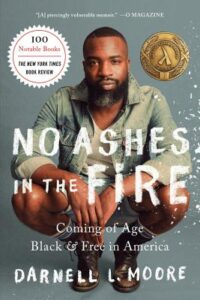
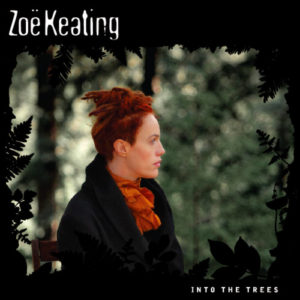




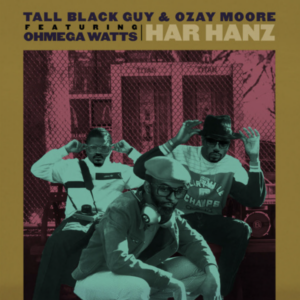
Reflections